Snapshots From Museums With Innovative And Comical Works Of Art
Galleries, museums, as well as other public institutions, barred their gates as the pandemic spread over the globe in order to comply with modern social distancing laws. Even though the rules are letting up, many people don’t feel comfortable wandering around these enclosed spaces for hours. To help you navigate this, there is us! In order for everyone to get their taste of culture, we put prepared a list of intriguing museum pieces.
We have made sure to offer something for every taste from a variety of museums — oddly familiar mannequins, camouflaged cars, and Iron Thrones. The choices are simply endless. So, keep on reading and take a look at the selections. They ought to quickly satisfy your inner elitist.
Mimicry
Beetles belong to the insect order Coleoptera. Beetles have two wings instead of the four found in most other winged insects; their forewings have been transformed into hard shells that shield their rear wings and abdomen. Like other insects, beetles are shielded by rigid exoskeletons.
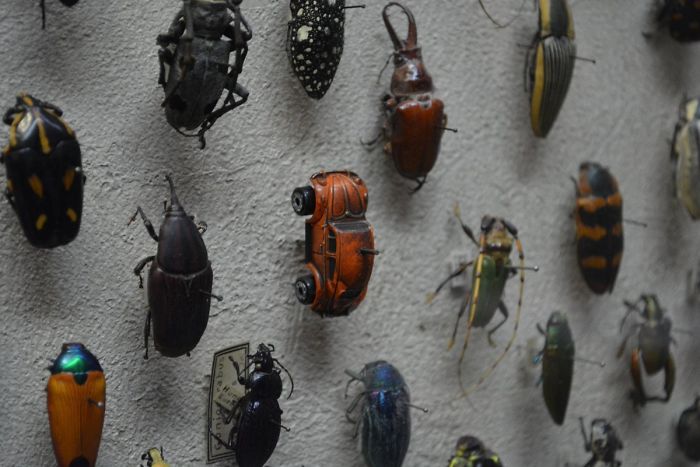
Since beetles belong to an insect order, there are seemingly endless species of beetles roaming this Earth. However, they do have certain characteristics in common, as we mentioned earlier. This one museum-goer spotted the wrong kind of beetle (a VW Beetle) in this entomological collection.
DO touch the art – Berlin, Germany
The Berlinische Galerie contains an astounding variety of works by major European masters, such as Botticelli, Dürer, Rembrandt, Rubens, and Titian, spanning from the 13th to the 18th century. With more than 16 of Rembrandt’s paintings, this museum is the world’s leader for followers of the artist.
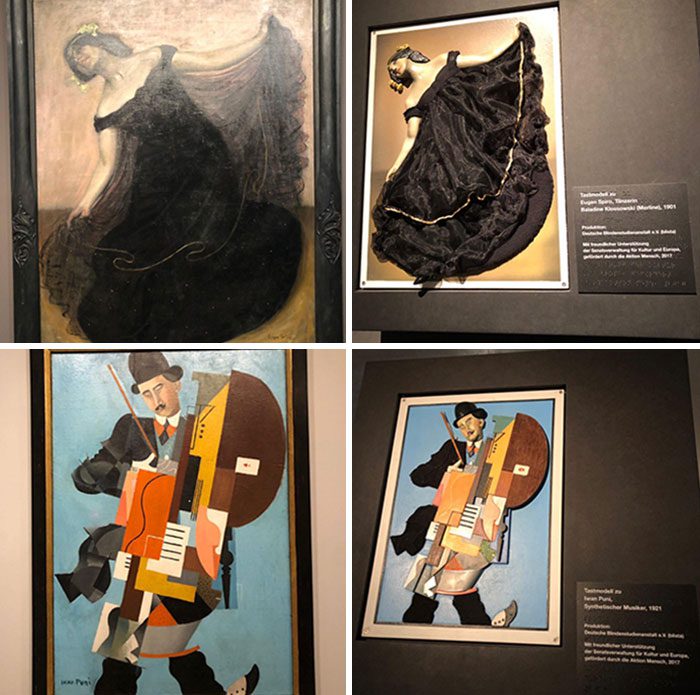
Over 3,000 pieces of art are shown sequentially across over 53 halls, spanning all eras, art disciplines, and schools. What makes this gallery special are the tactile pieces of art. Sight-impaired and curious young children are encouraged to visit and feel the art in ways that their eyes can’t.
Interesting business model
You’re in for a wonderful treat if you chance to stroll by while the charming studio is open. There are antique woodblock prints within. The prints are ukiyo-e, a renowned kind of Japanese art from the 17th through to the 19th centuries.
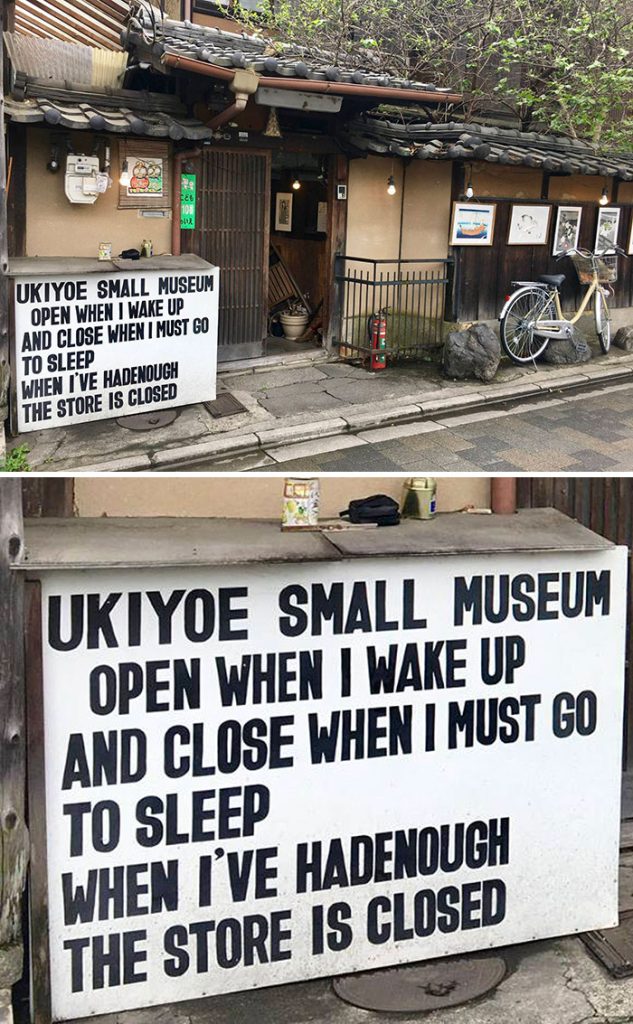
Even while the art of creating stunning pics of people, creatures, scenery, and folklore was once well-liked, by the 20th century, it had started to decline. There are currently almost 50 ukiyo-e artists in Japan. As of now, this particular shop is permanently closed.
Next up: Planet of the Apes!
As funny as this sign is, the message it gives is quite deep. We all know that you shouldn’t give any food to animals at the zoo. They are well taken care of by the zookeepers, and their digestive systems are not adapted to process human food.
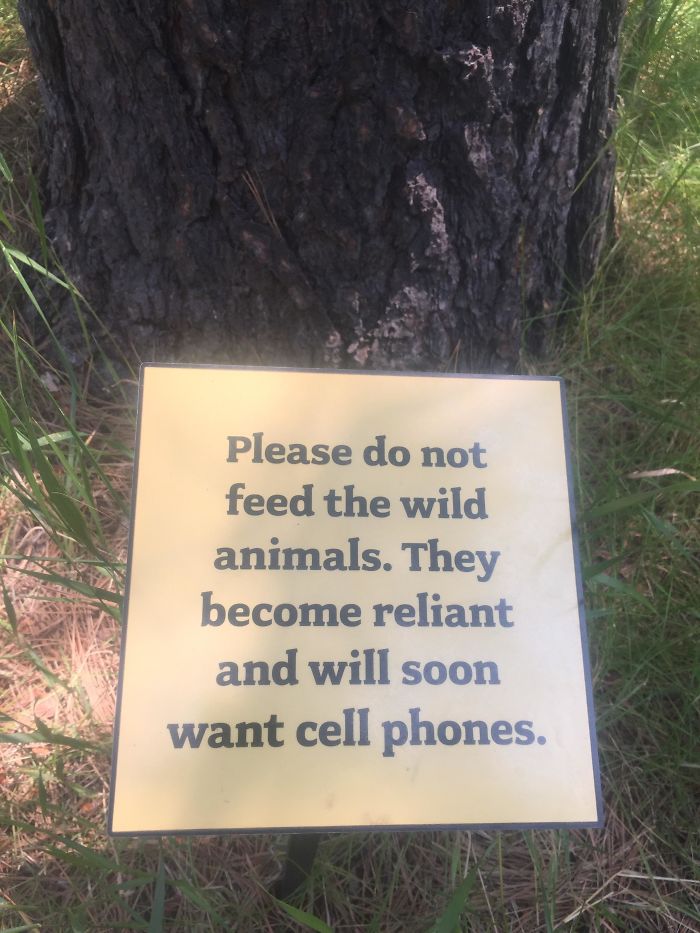
Is the implication here “you are what you eat”? If the animals eat human food, then they’ll become humans. This sign looks like you’d find it in the prologue of Planet of the Apes or Animal Farm. What a creative way to tell people to keep their food to themselves.
Peabody Essex Museum – Massachusetts, USA
The Peabody Essex Museum (PEM), which was established in 1799, is the oldest institution still in operation in the nation. Additionally, it is among the biggest and fastest-growing. Guests can take tours of historical buildings, such as the 200-year-old Chinese house Yin Yu Tang.
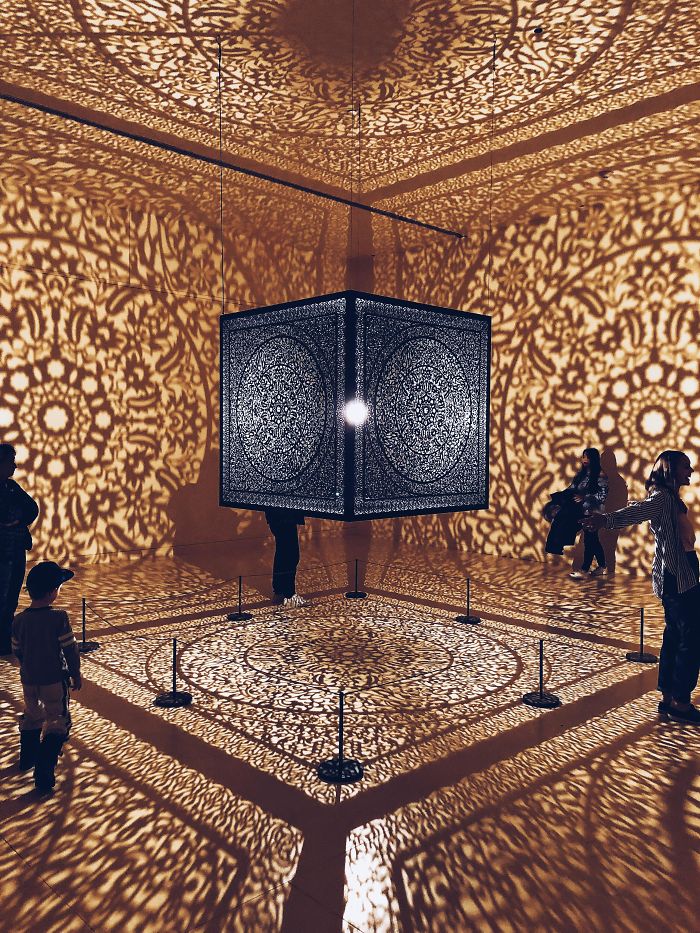
Also, the Ropes Mansion and Gardens, which were used in the movie Hocus Pocus, as well as actual witch trials artifacts, maritime plus fashion exhibits, and much more. Just look at this installation right here! We wish they would have replicas like this as lamp shades at the gift shop.
Miniature Museum – Prague, Czech Republic
The miniature masterpieces of Anatolij Konenko are on display at the Museum of Miniatures in Prague. Konenko, a skilled micro-miniaturist who was born in Omsk, Siberia, is among the minimal number across the globe. His art includes “norms” like Matisse’s The Dance on a mammoth bone fragment.
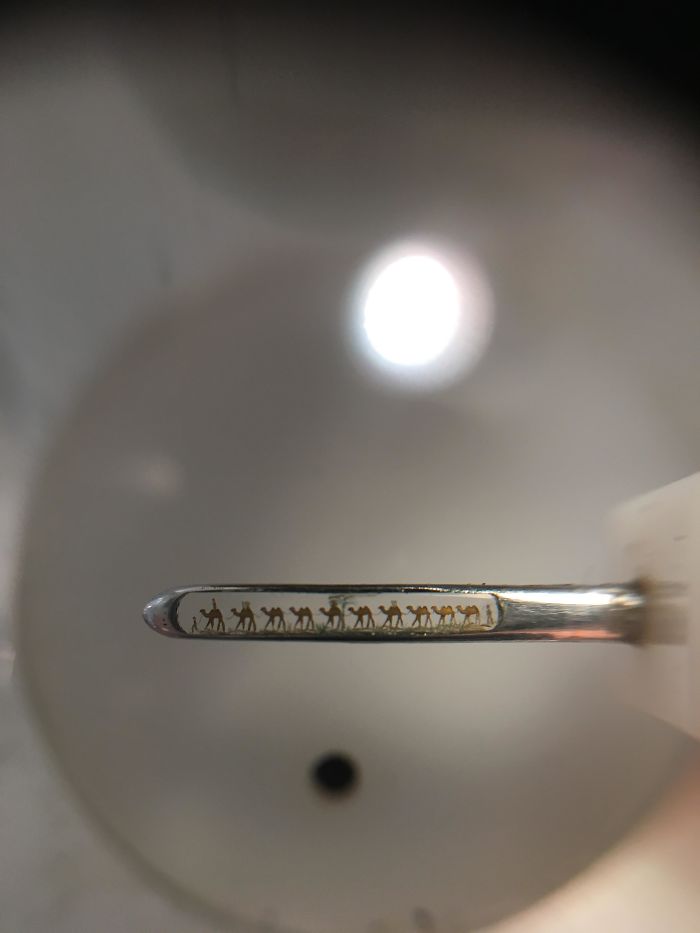
As well as the more imaginative works like that of a caravan of camels easily passing through a needle’s eye. One of Konenko’s greatest, most impressive works is a flea sporting horseshoes for feet plus tiny scissors, a key, and a padlock in his hands.
“Exploded” 1908 Ford Model T – Henry Ford Museum of Innovation
In 1908, the first Model T was unveiled to the public. Henry Ford aimed for the Model T to somehow be reasonably priced, user-friendly, and long-lasting. Ford was able to produce the universal car thanks to the invention, which was one of the earliest mass-produced cars.
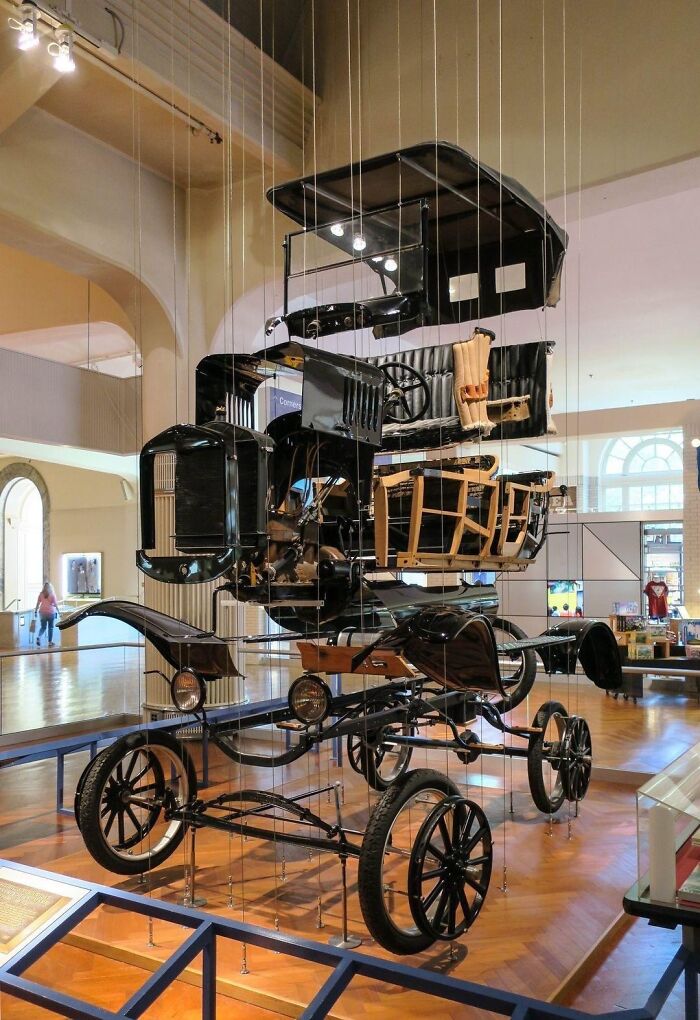
The car rose to fame for its tricks, which included scaling the steps of the Tennessee State Capitol as well as ascending the summit of Pikes Peak. Exploding it like this shows you the intricate workmanship that went into creating this machine.
Exhibition on toilets – Tokyo, Japan
This came from a toilet-related exhibition that took place in Tokyo. Four sections made up the display. The primary objective of section one was to provide knowledge on how feces affect our health. Graphics of the optimum restroom were provided in section two, including clean whites.
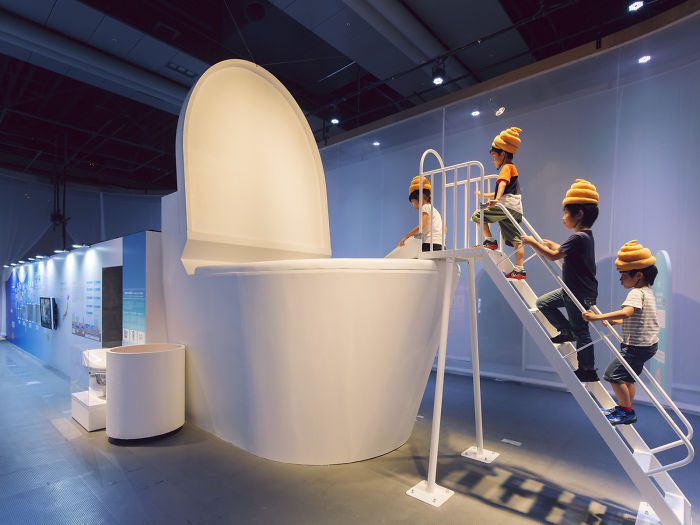
The processing of feces in human bodies as well as in the lavatory are explained in the third section. The next section describes how toilets might seem in space and also how the absence of proper waste management would result in poor hygiene.
Chinsekikan – Chichibu, Japan
There is a rock museum named Chinsekikan in Chichibu, two hours northwest of Tokyo. Although tourists won’t learn anything about geology here, you will have a great time taking in odd exhibitions. You’ll find the Jesus rock, the Donkey Kong rock, the Boris Yeltsin rock, and much more.
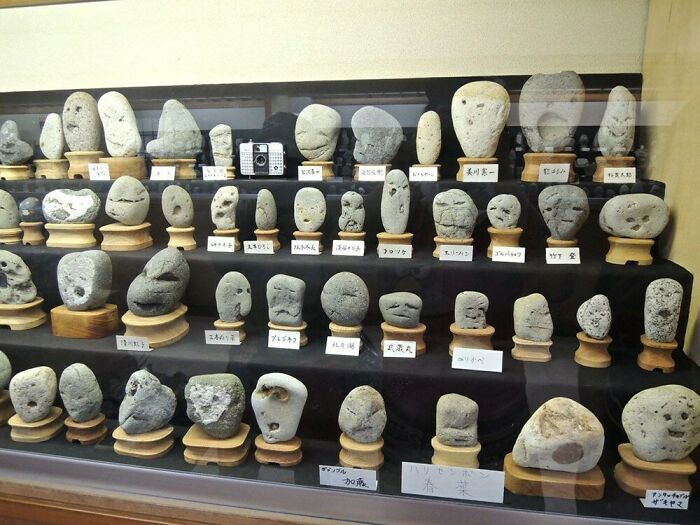
The “hall of curious rocks,” known as Chinsekikan, contains more than 1700 exhibits; nine hundred of them have features that mimic human features. There’s an inherent likeness of these rocks to famous people, religious figures, fictional characters, and much more.
Aurora Museum – Reykjavik, Iceland
Iceland’s Northern Lights season lasts from early September to the end of March, although a multitude of variables might affect how easy or difficult they are to see. According to data, March and October are the ideal periods to watch the auroras, because they have less rainfall and more steady conditions than other months.
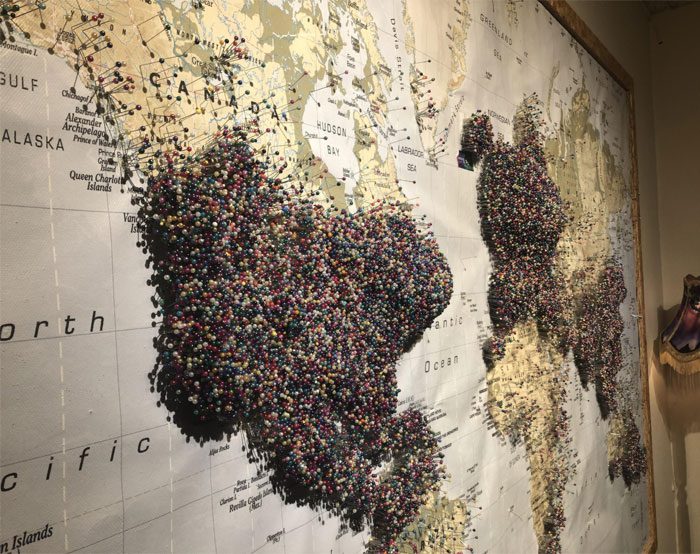
While Iceland is one of the best places to spot the Northern Lights, there’s no regional limit to where these curious visitors come from. You can spot this map at the Aurora Museum showing how far some people have come to see this natural phenomenon.
Museum of the Moon – Natural History Museum, USA
Between 17 May 2019 through 5 January 2020, this traveling piece by British artist Luke Jerram was on show in the Jerwood Gallery. From Bilbao to Beijing, encompassing abbeys as well as swimming pools, this artwork of the Moon has been orbiting the Earth since 2016.
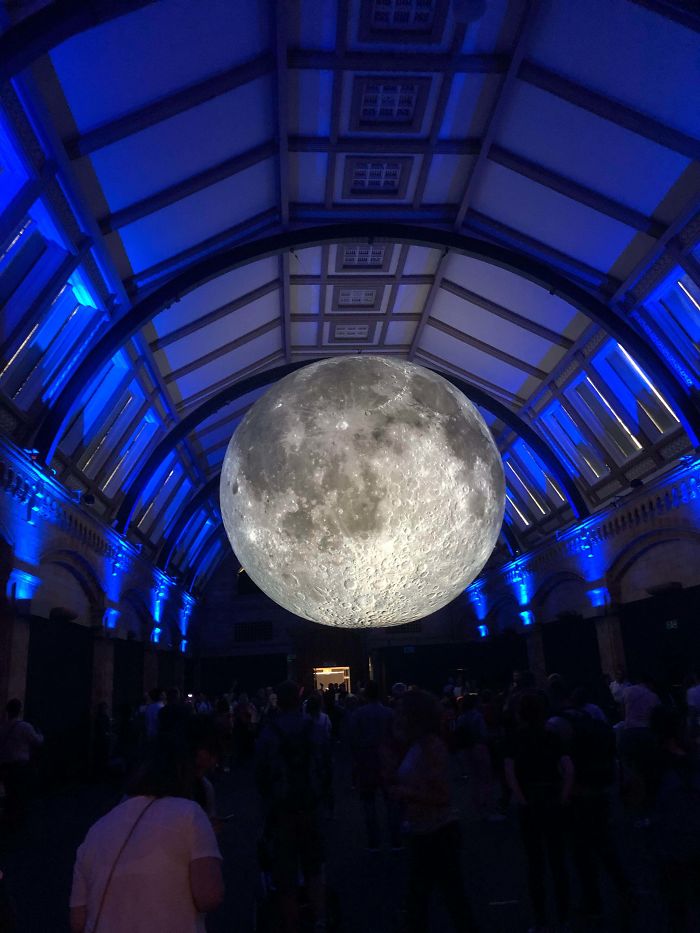
The six-meter-tall replica includes incredibly accurate NASA lunar surface photos, natural moonlight, and a changing ambiance. It’s surreal to be staring at such an accurate model of the celestial object that has spurred human curiosity for centuries, and will continue to do so for generations to come.
Hiss hiss
Parseltongue is the language of snakes in the magical world of Harry Potter. Harry himself was a parselmouth because of the fact that he was a Horcrux of Voldemort — which took almost six books for the chosen one to figure out.
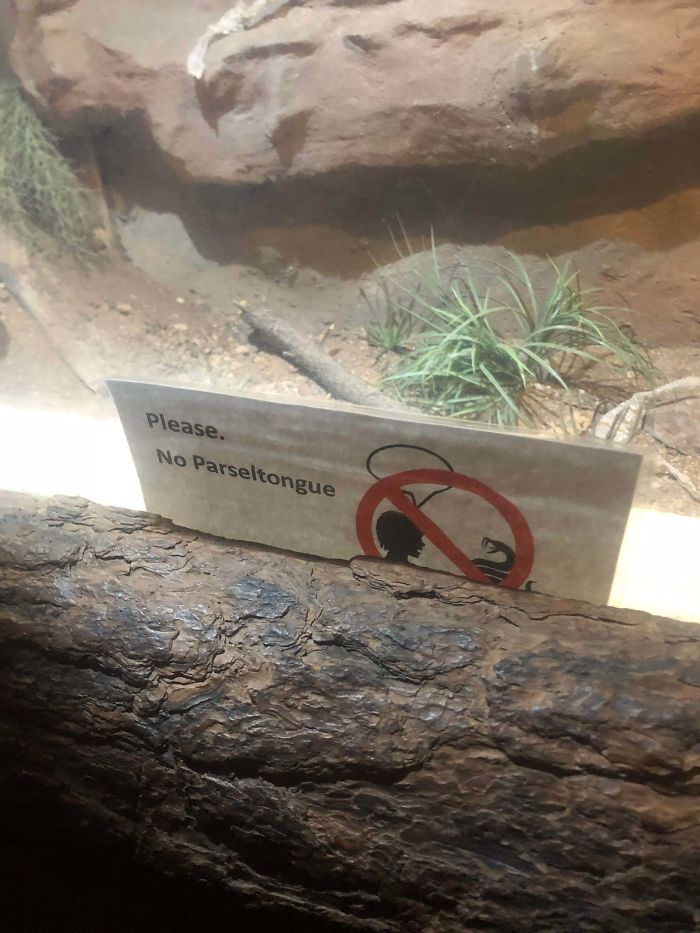
Snakes lack vocal cords, therefore they lack the ability to speak. By “speak,” we mean to make a noise. It would be awesome and terrifying if we encountered a snake only to have it start speaking to us in its regional dialect.
Leopold Museum – Vienna, Austria
Among the most significant museums of Austrian art from the latter part of the 19th century through Modernism is housed at the Leopold Museum. Over the span of fifty years, Rudolf, along with Elisabeth Leopold, jointly produced this distinctive collection that now contains about 6,000 pieces.
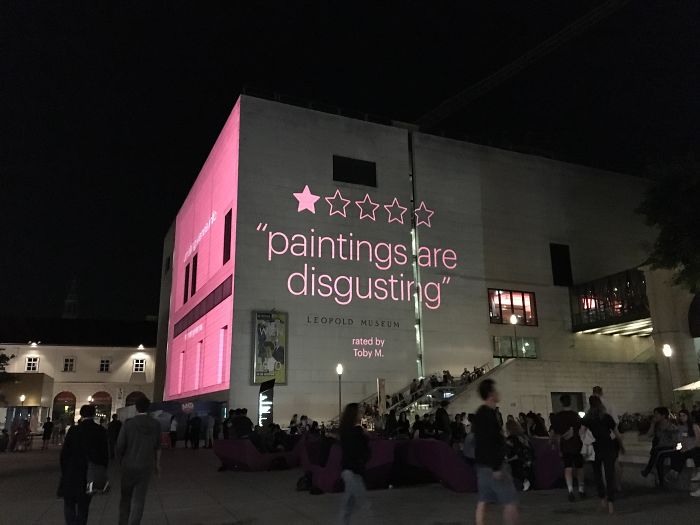
They gathered works by masters, including Egon Schiele and Gustav Klimt, thanks to their remarkable passion for art. Plus, they seem to have a really good sense of humor! Don’t visit a museum like this if you can’t appreciate art!
Technically, it’s true
Even though it is now obsolete, the floppy disc proved revolutionary when it was originally introduced. People asked, “is it feasible for a gadget like this to hold 80 KB of data?” We might laugh at that question now, but you can’t deny the technological feat they initially were.
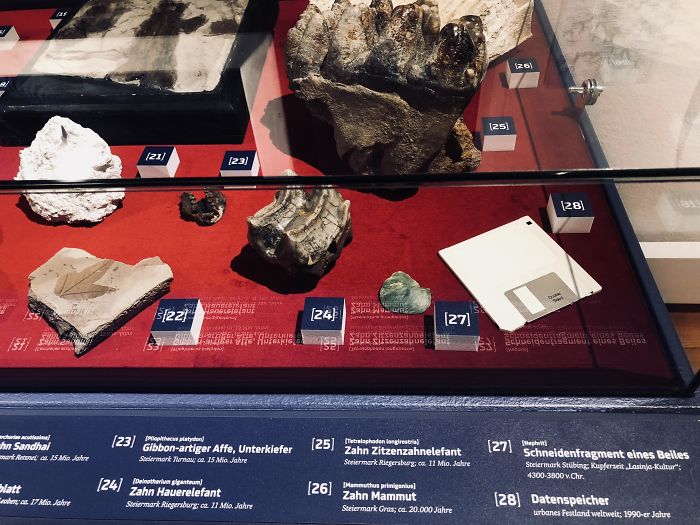
This person spotted a floppy disc in a museum’s “fossils” section. This is appropriate, especially if you, like us, refer to old desktop computers as “dinosaurs.” Jokes aside, we commend the curators for including a floppy disc. The technological marvel deserves to be remembered.
St. George Dinosaur Discovery Site – Utah, USA
The museum’s history can be traced back to 2000, when Dr. Sheldon Johnson, an area optometrist, began flattening a hilltop on his land. After excavating many feet of soil, he discovered a substantial layer of sandstone. Dinosaur tracks in this layer made it the “paleontological jackpot”!
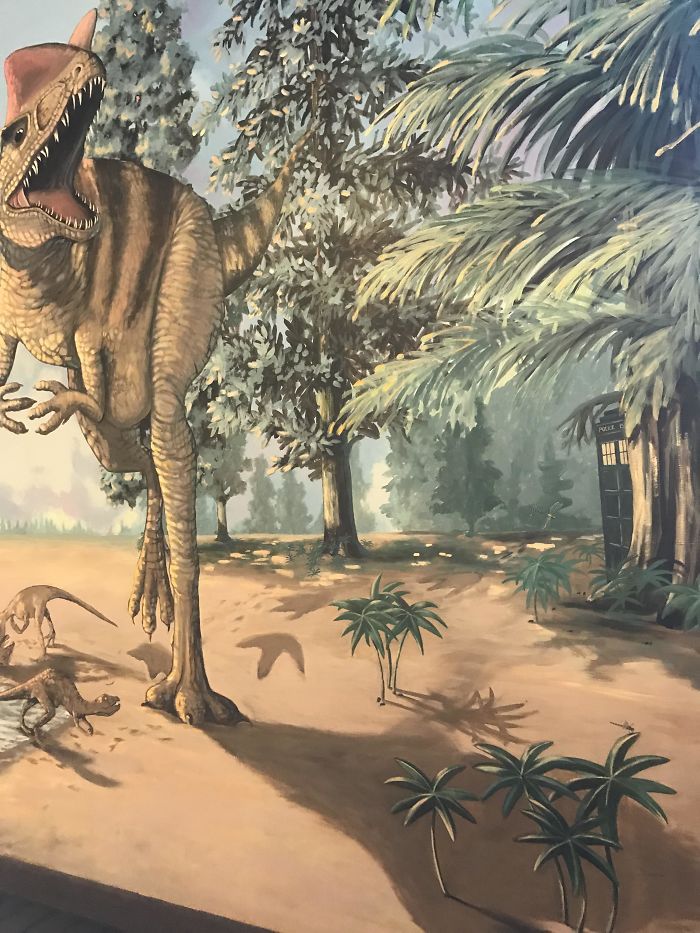
Hundreds of volunteers, along with expert paleontologists from all over the state, assisted in discovering hundreds of fossils within such a short period of time. But what we love the most about this museum are pieces like that that sneak in pop culture references. There’s truly something for everyone.
The Corpus Experience – Leiden, The Netherlands
By allowing the visitors to literally pass through a massive structure fashioned like a human body, the CORPUS experience at Leiden offers a singular experience through the human body. The journey, as well as the exhibition, provides information on how human bodies function.
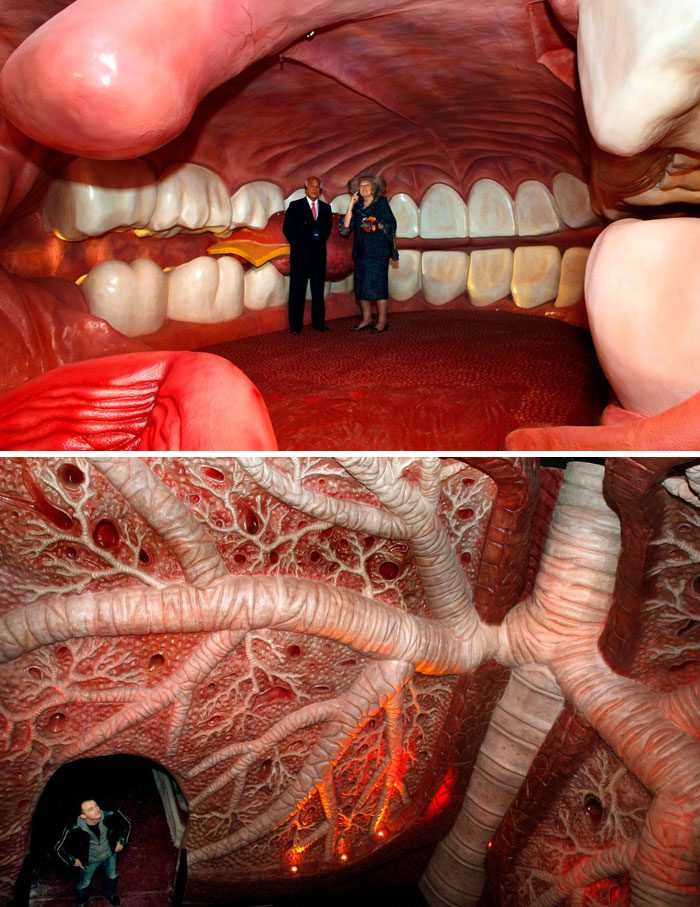
Walking through a giant replica of a human body reminds us of that episode of The Magic School Bus when they enter Arnold’s body. Places like this should be a requirement for biology students. We can’t think of a better way to learn about the complicated “machine” that is the human body.
The Samsara series of Sculptures by Isana Yamada
Isana Yamada, a Japanese artist, has produced an amazing collection of translucent whale figurines that house images of varied ocean creatures. His master’s thesis at the Tokyo University of the Arts has been the Samsara series, which is depicted here.
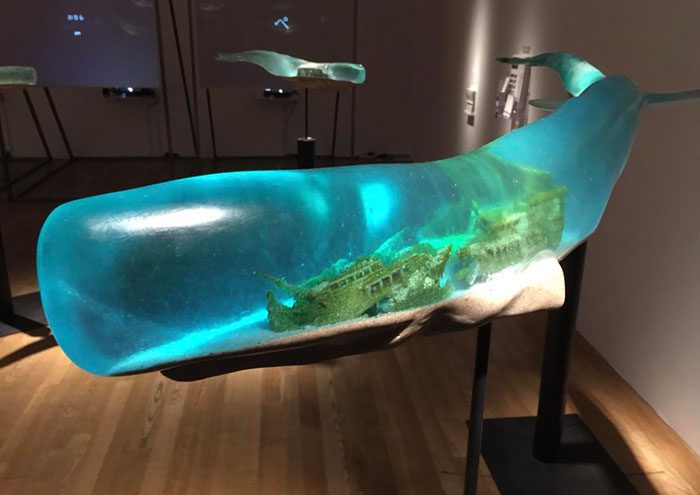
“Samsara” is a Buddhist term that refers to the endless cycle of rebirth, life, and death, as well as one’s acts and their effects throughout the past, now, and beyond. This concept was chosen by Yamada to be represented in his fantastical works.
Broad Museum – California, USA
The largest collection of postwar and contemporary art found anywhere in the world, consisting of 2,000 pieces of artwork, is housed in the Broad Museum. The Broad’s permanent collection contains two of the Japanese artist Yayoi Kusama’s renowned Infinity Mirror Rooms.
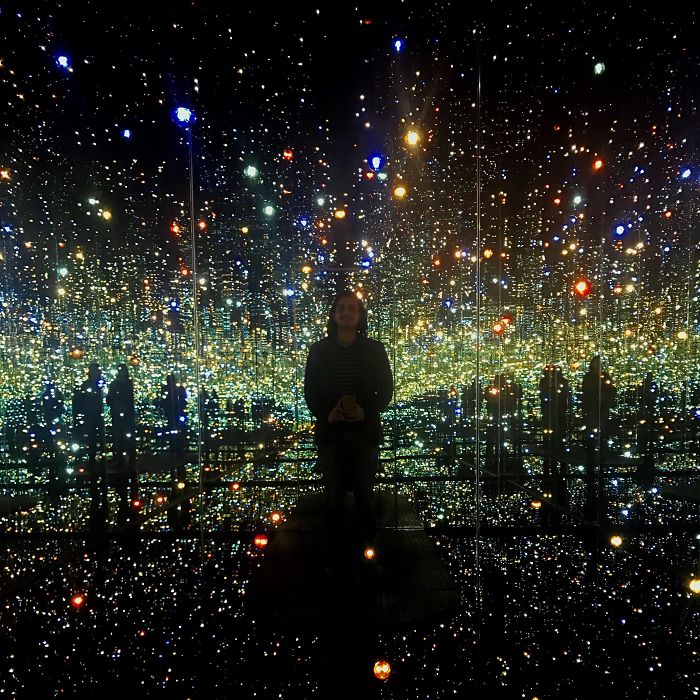
The Souls of Millions of Light Years Away, one of the most recognizable pieces on display at The Broad, is a mirror-lined room filled with a brilliant and seemingly infinite array of LED lights. Walking through it gives one the impression of an infinite expanse.
Lost wax method knitted glass – Seattle, USA
Before you get excited, we’re sorry to say that you can’t actually knit with glass. This fantastic piece of art is designed to emulate a knitted project frozen in time. The artist, Carol Milne, has a wide array of glassworks just like this one.
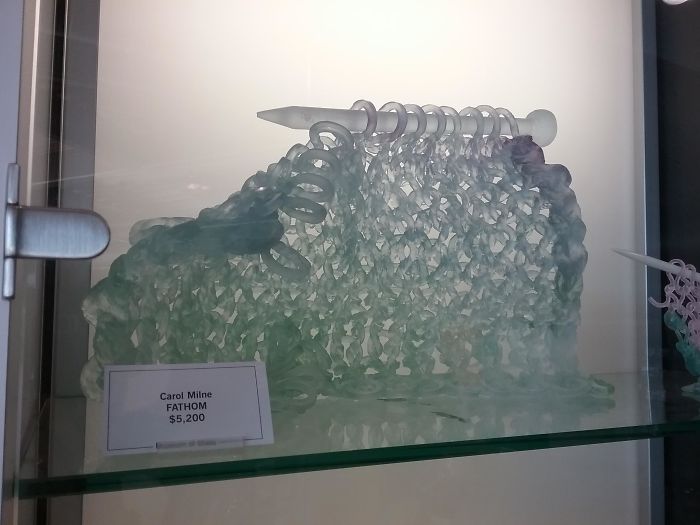
To make these, she uses mold castings. While this process isn’t anything new, the meaning of the work is what’s important. By creating a “freeze-frame” of a knitted project, Milne is paying tribute to all artworks that are considered unfinished, but are, in their own way, perfect and complete.
Ulster Museum – Belfast, Ireland
The Ulster Museum’s fascinating display methodically charts the development of “the troubles” in Northern Ireland. Historic and stunning Irish Wolfhounds coexist with mesmerizing dinosaurs, and relics from the Girona, a Spanish Armada wrecked close to the Giant’s Causeway, are shown beside bronze age gold jewelry.
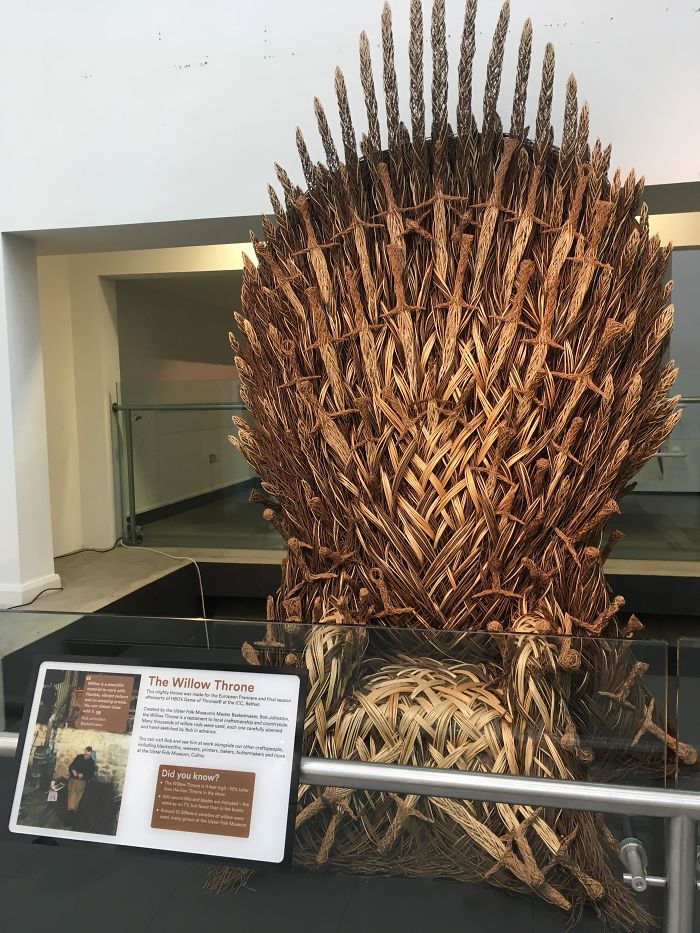
The popular ancient Egyptian mummy Takabuti is buried on the third floor. All that history and exciting artifacts are housed along with this fantastic piece — a near-perfect replica of the Iron Throne from the Game of Thrones, made from willow. We don’t advise sitting on it, but what a magnificent replica!
Cincinnati Art Museum – Ohio, USA
The Cincinnati Art Museum, which is situated in picturesque Eden Park, has an unmatched display of over 67,000 pieces of art covering 6,000 years. The Art Museum exhibits a large portion of its own extensive collection as well as hosts a variety of national and touring exhibitions.
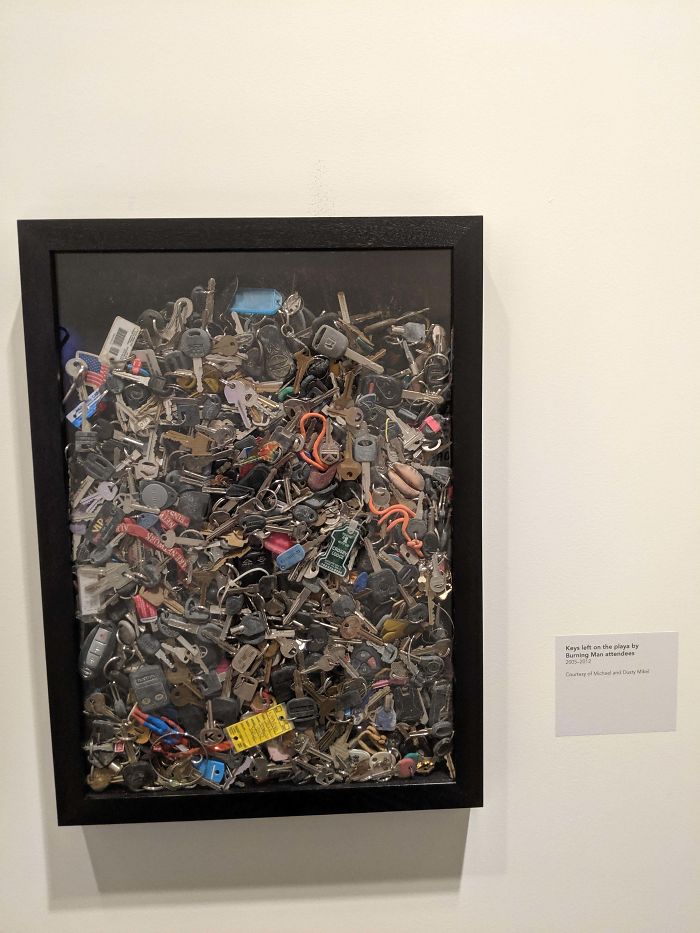
Speaking of art, just look at this collection of keys! All these are collected from the annual Burning Man festival. It signifies the temporary nature of even important objects, like your house or car keys. Looking at this, we can’t help but wonder how many people had to call a locksmith after the festival.
The Uffizi Gallery – Florence, Italy
The Uffizi Gallery, one of the biggest and most well-known institutions in the world, is situated in Florence’s old center. Its inventory of priceless artworks is primarily from the Italian Renaissance era. The headquarters of the city’s magistrates were once housed in the Uffizi building.
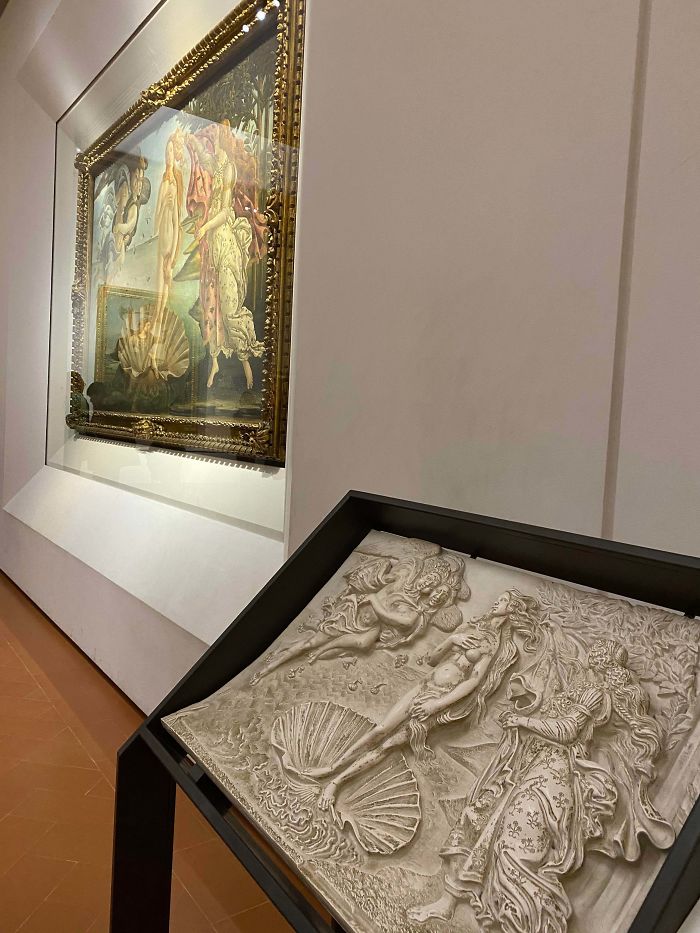
Just like the Berlin museum we saw earlier, the Uffizi Gallery includes some 3D replicas of painted works. As you can see above, they have intricate stone “carvings” of the art. We love the inclusivity in these museums. Everyone should be able to experience art, especially those of historical significance.
Something to read, while doing the deed
These chamber pots remind us of a small building that genuinely celebrates the adage “form follows function.” It is the Museum of Chamber Pots and Toilets! There are many different shapes inside its collection of old toilets and chamber pots, each for one (or possibly two) body functions.
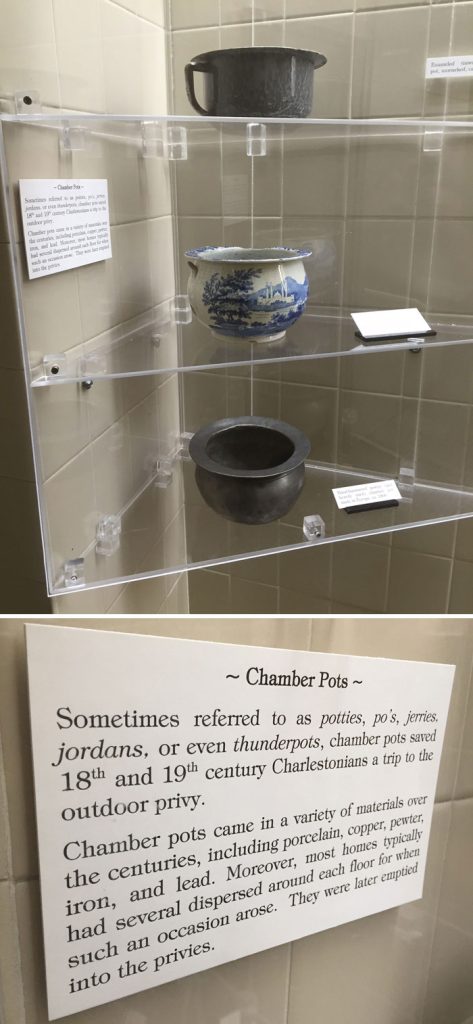
Upwards of 2,000 pots, seats, thrones, restrooms, lavatories, and pretty much everything else you could imagine, comprise the odd, and oddly specific, collection. This includes some rather well-known people’s items, which could not normally be given such a professional position on display.
Hungry for more art
Many artists try to stand out by using unconventional materials to produce their works. Artist Tanaka Tatsuya did just that when he began making miniature sceneries, like this avocado island. The OP spotted this masterpiece in a museum in Japan.
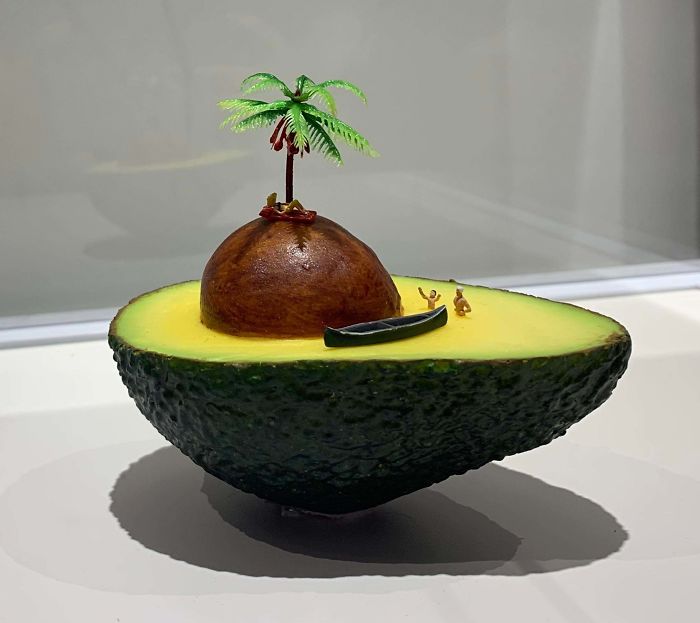
If you don’t live in Japan, or plan to visit, you’ll be happy to know that Tatsuya maintains an active Instagram account. There, you can see a variety of scenes, including images from his exhibition called Miniature Life. You can check out tanaka_tatsuya on Instagram for more.
Smithsonian Museum of Natural History – Washington D.C, USA
Carcharocles megalodon, often known as megalodon as well as megatooth, was the most well-known ancient shark that dominated the waters from around 17 million years ago to just about three million years ago. The enormous predator grew as large as a boxcar, measuring up to 60 feet.
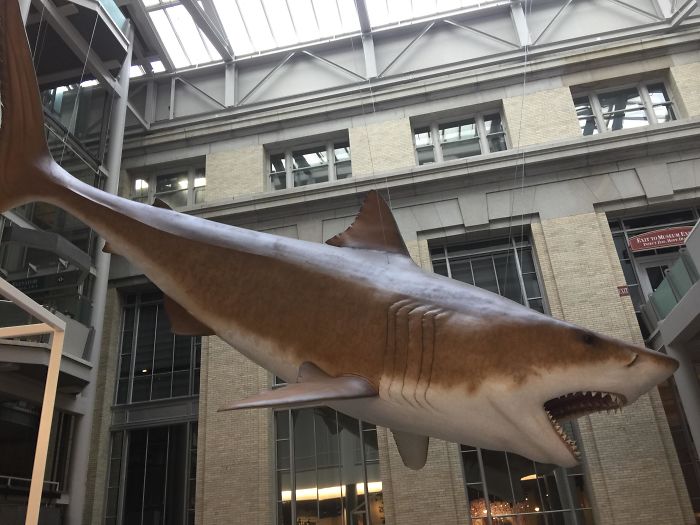
The blue whale, which can weigh up to 200 tons and is slightly larger than a megalodon, is the sole marine species to have ever outweighed the enormous megalodon. A model like this can truly give the much-needed perception of how big it really was.
3-D Printing Exhibit
Rapid prototyping is the technical name for the technique that we, the layman, know as 3D printing. This technological breakthrough has made it possible for businesses to create prototypes more rapidly and precisely than with existing techniques. Its applications today are far more varied today due to three decades of advancement.
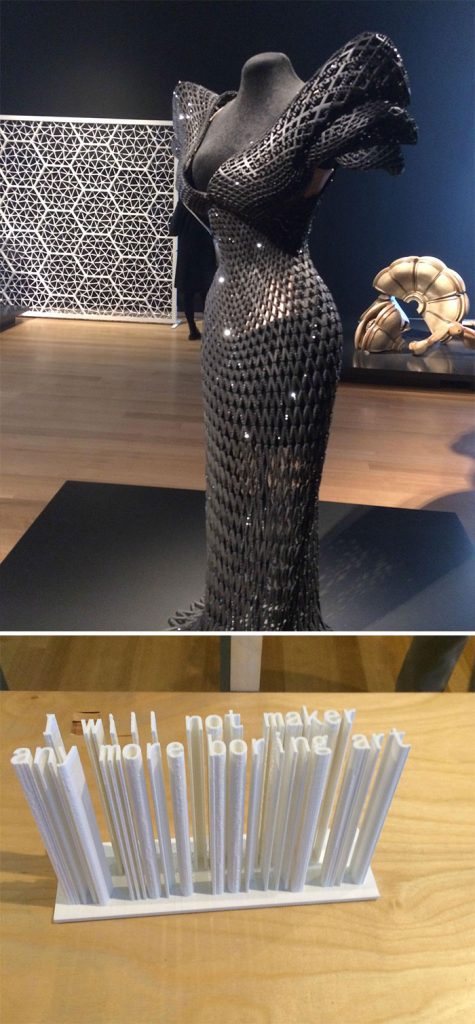
With time, the technology has also become more widely available because to the creation of smaller “desktop” 3D printers, available at a reasonable price. To make items with a 3D printer, layer after layer of molten material is built up to create the computer-generated model programmed into the machine.
Sand Museum – Tottori, Japan
A few of the finest sand sculptures in the entire world may be found in the Sand Museum, a singular and interesting establishment. Every year, the displays’ themes change. Past motifs have included places like Southeast Asia, South America, and nations like Germany and Great Britain.
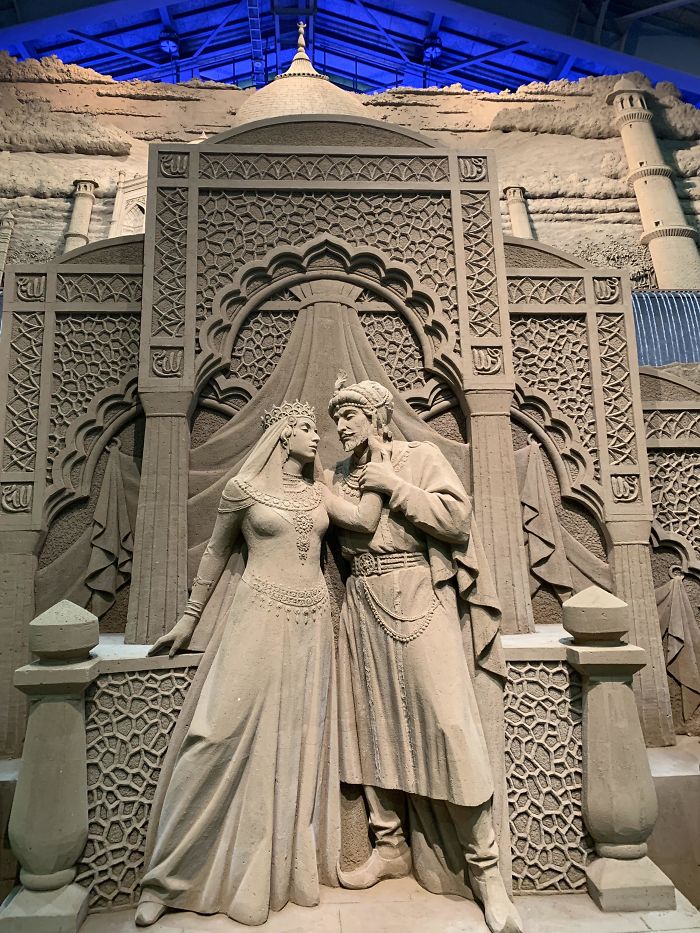
Initiated in 2006, the Sand Museum project became the world’s first enclosed space devoted to the display of sand creations in 2011. The Japanese attribute of understanding something which is not eternal is inextricably related to the natural transience of the sand.
Chicago Fed Money Museum – Illinois, USA
In order to provide centralized control of American financial regulation, the Federal Reserve system (commonly referred to as merely “the Fed”) was founded in 1913. It was anticipated that a much more secure, less susceptible to crises finance system would result from this type of central banking institution.

The Federal Reserve still plays a significant role within the financial system, affecting a variety of aspects of the US economy, such as long-term interest rates, stable prices, and employment levels. This particular exhibit here gives an idea of how large a sum is a million dollars.
Jim Henson Exhibit at the Museum of Moving Images – NY, USA
In the Jim Henson Exhibition, a wide variety of items spanning his illustrious career are all on display. It explains how Henson with his group of creators, actors, and writers created the timelessly well-liked universes of Sesame Street, The Muppet Show, and The Dark Crystal.
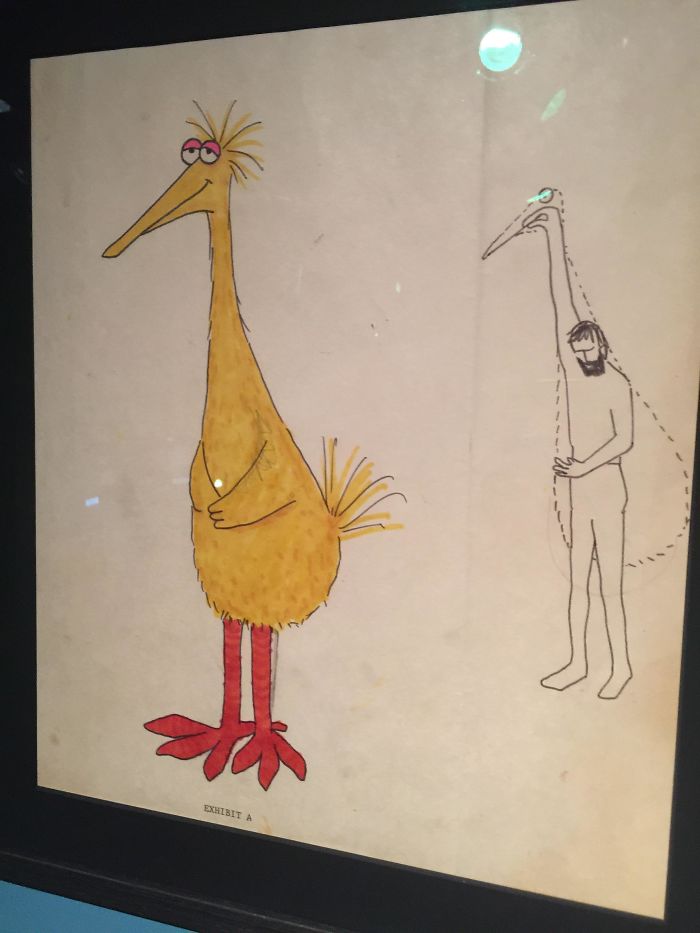
Also, the Muppet movies, Labyrinth and Fraggle Rock. It also features content from Henson’s early career and independent film endeavors, portraying him as an energetically innovative entertainer, director, and technical inventor. Look at this very first draft of the beloved Big Bird! How awesome is that?
Athens Pinball Museum – Athens, Greece
The Athens Pinball Museum features, unsurprisingly, pinball machines. There are more than 100 pinball machine games, some dating back to 1958, for you to explore or play with, all of which are immaculately preserved, in superb shape, and fully functional.
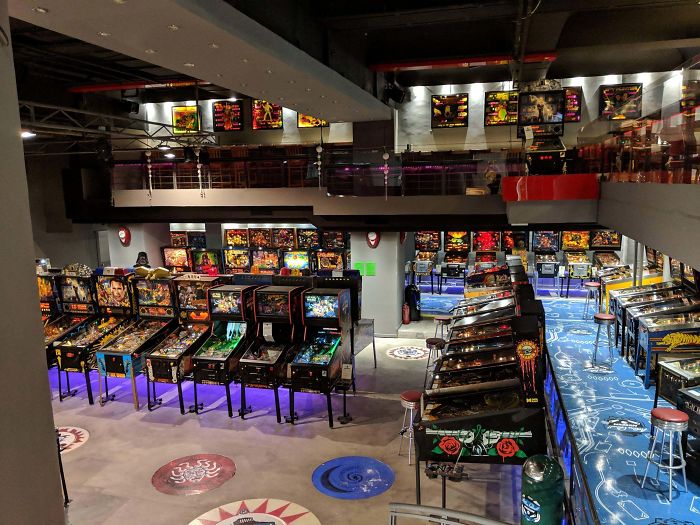
We can’t even imagine how it would sound if every game was being played at once. The frantic clicking, energizing lights and mechanical sounds, and frustrated grunts of players would be overwhelming. Still, we think we’ll put this on our “to visit” list for our next road trip.
Pacific Science Center – Washington D.C, USA
PacSci’s Tinker Tank is a hands-on creating area close to the Tropical Butterfly House in the Ackerley Gallery. Visitors can anticipate seeing a range of locations for playing with LEGO, paper aircraft, wooden structures, and much more. Every day, there is a guided drop-in program.
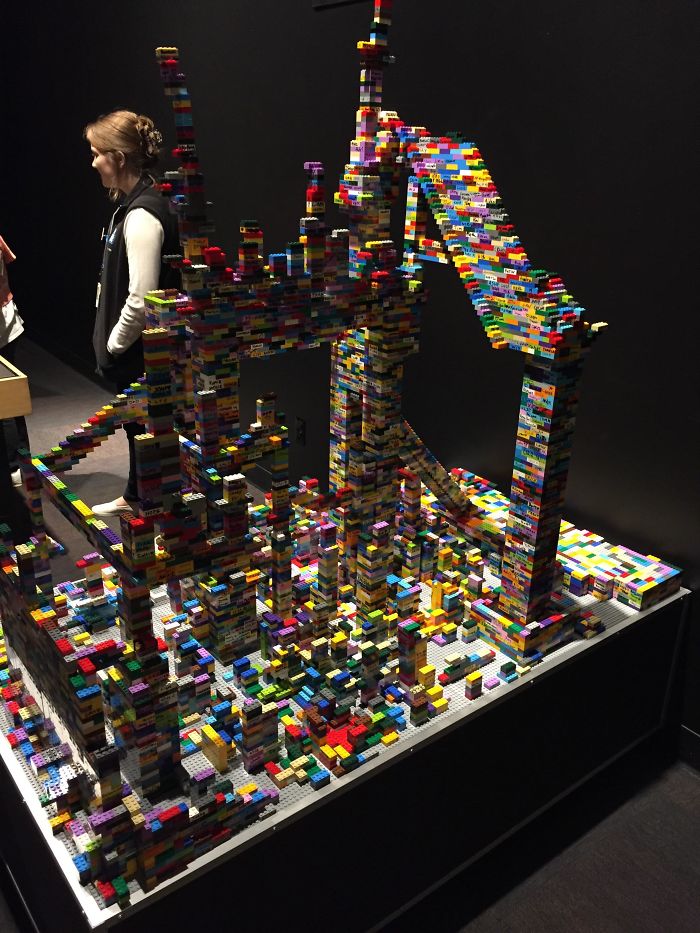
As well as a wide variety of unguided projects that visitors can engage in on their own. For example, this project right here. You can place a LEGO brick, with your name written on it, anywhere you like. That sounds really neat.
“Drink me”
If you thought the mirror room was cool, check out this exhibit, also located at the Broad Museum in Los Angeles. This gigantic table, appropriately titled Under the Table, was created by Robert Therrien. The dining set was built in 1994…

This piece reminds us of Jack and the Beanstalk, when Jack climbs up to the giant’s home, or the unfortunate Alice after she drinks the potion. The table is 216 inches tall, and over 300 inches in length, and 117 inches in width!
Disgusting Food Museum – Malmö, Sweden
The Disgusting Food Museum encourages daring foodies to sample and smell 80 of the world’s most repulsive foods, including turtle soup, cheese that has been infected with maggots, fermented birds and much more. The museum attempts to label what constitutes “revolting” food…
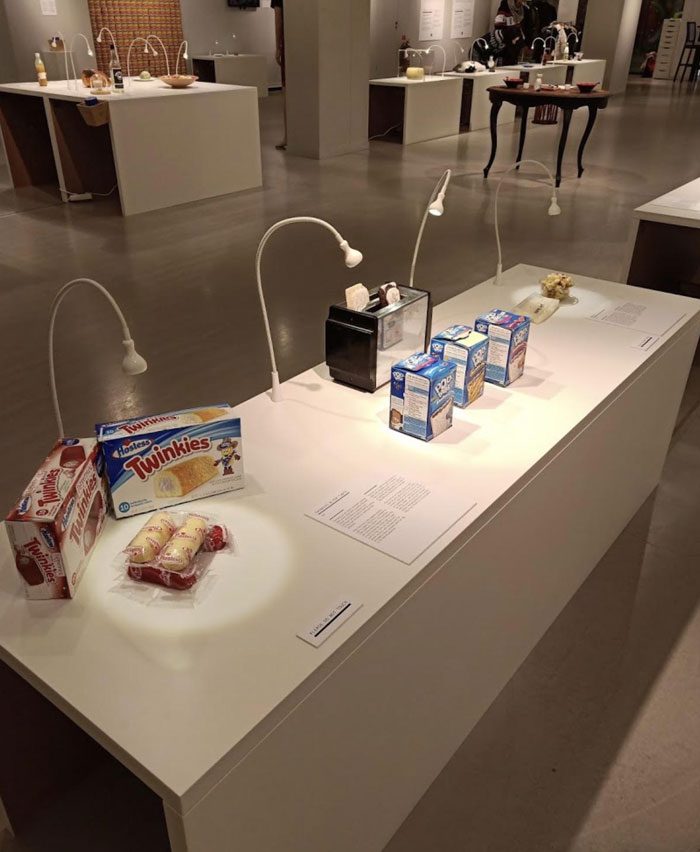
…by demonstrating how foods that are deemed repulsive and unappetizing in some nations are regarded as a delicacy in others. We bet that the Zombieland character Tallahassee would make this his destination. Look at those perfectly preserved Twinkies just waiting for him!
Marionette Museum – Lisbon, Portugal
A magnificent collection of over 1,000 puppets, many originating from the 17th and 18th centuries, featuring warriors, princesses, and devils, are kept in the late 18th-century Bernardas Convent. The majority are Portuguese in origin, although others are from varied nations like China, New Zealand, and India.
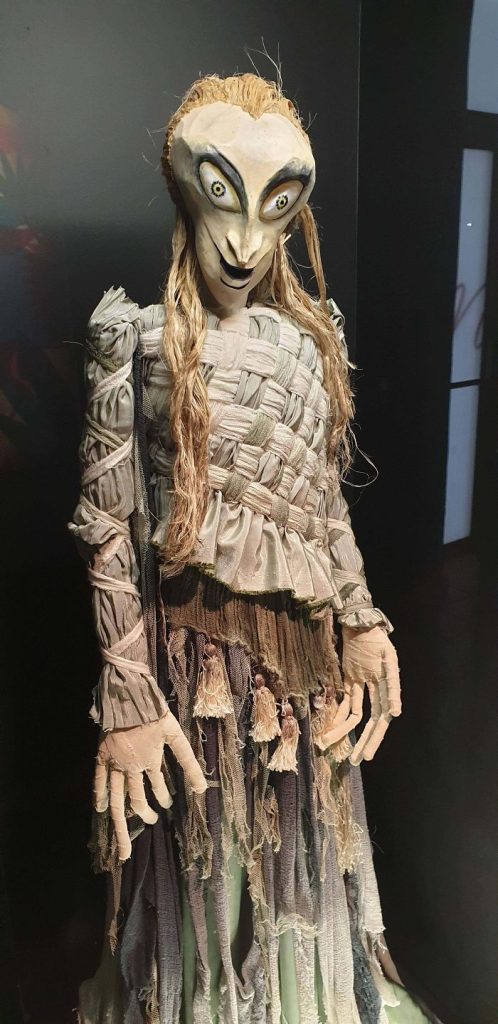
There are regular puppet shows and a museum that recounts the origins of the art form. That all may be interesting but what we really want to know is what drove Alberto Urdiales to create this “elf” from the black lagoon.
Feeling blue…
The OP that shared this unfortunately didn’t include where in the world this bizarre scene happened. Yes, we know it’s in a museum, but other than that, we’re clueless. In fact, we don’t even know if this is an exhibit!

For all we know, some pranksters inflated hundreds of blue balloons and released their collection on the museum’s floor. We hope that this was intentional, otherwise, there were likely many poor docents that had to clean up this noisy mess.
Musical Instrument Museum – Arizona, USA
It is the biggest museum of its kind in the world and is situated in Phoenix, Arizona. It first opened its doors in April 2010. Every populated continent is represented in a collection of 15,000+ musical instruments and related items, which spans approximately 200 nations and territories.
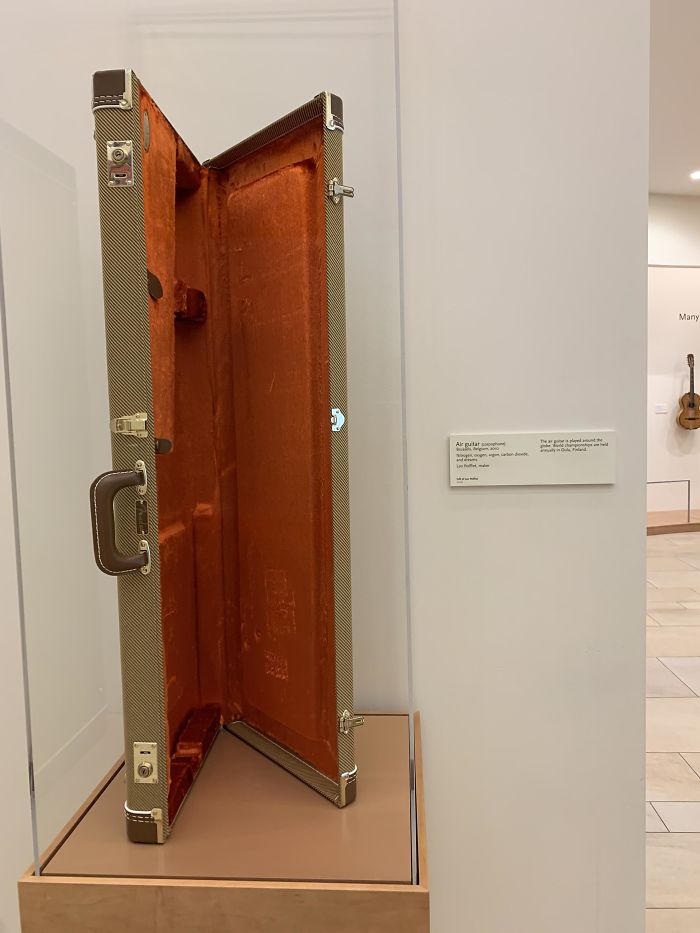
There are numerous exhibits containing subgroups for various genres of indigenous, ethnic, and tribal music in some larger nations, including the United States, China, India, Mexico, and Brazil. The air guitar on display happens to be the one instrument no one would know if stolen!
National Gallery – Bratislava, Slovakia
In Bratislava, the Slovak Gallery was established in 1943, during the First Slovak Republic. Currently, there are around 70,000 artifacts in the SNG’s collection, a majority of which are a part of the country’s culture and heritage. When it comes to the preservation and safeguarding of monuments, they have it covered.
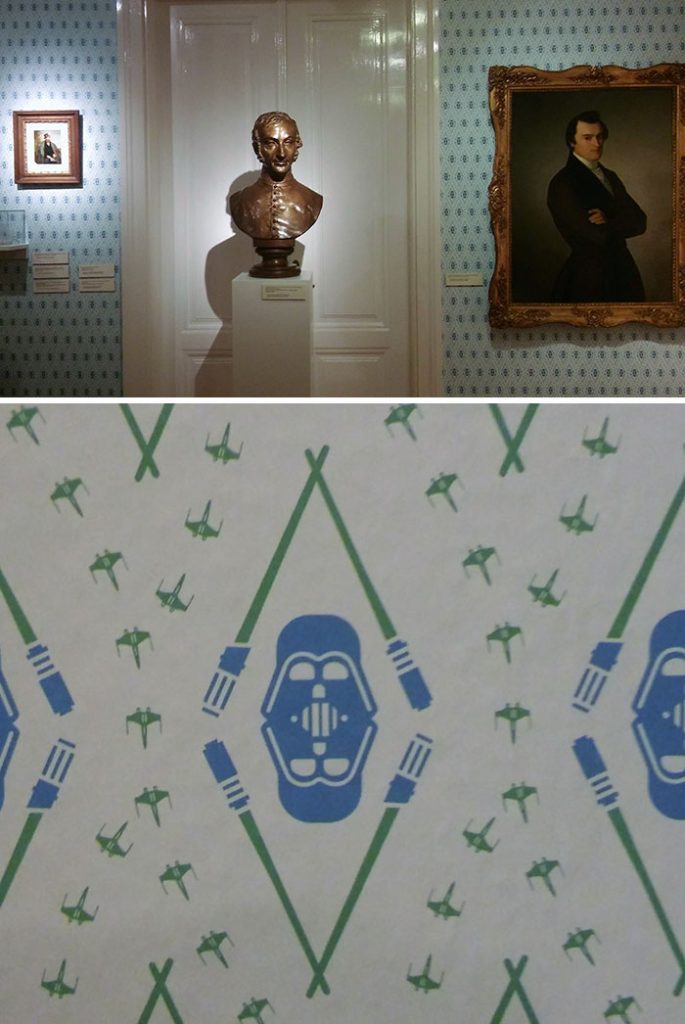
The Gallery plays a crucial role in preserving both tangible and intangible cultural legacies. Quite notably, the gallery itself is housed in a number of national monuments. All put into wondrous perspective with this perfect choice for wallpaper. The Force is strong with this curator.
Not really Da Vinci’s chair? Bummer!
Shame that the organizers aren’t good sports when it comes to pulling a prank. They could have not labeled this and left it as it is. We hope that some docent is peering from somewhere concealed and trying to stifle their laughter as people confuse this for art.
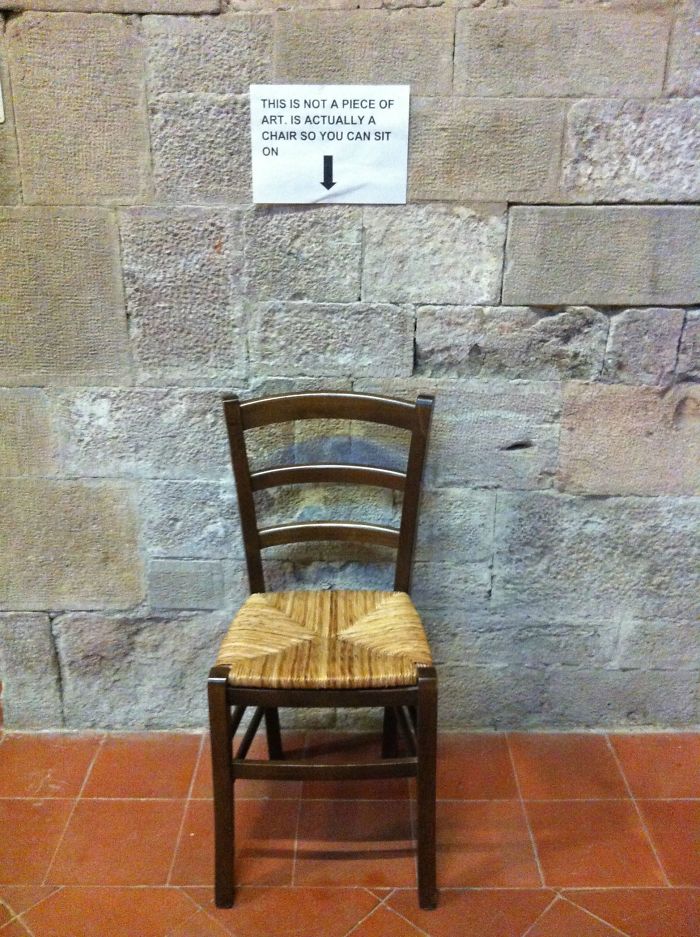
We mean, it is art, depending on how you look at it. Beauty is in the eye of the beholder. If there’s one thing modern art has taught us, it’s that the cultural significance of art depends on how it’s interpreted and presented.
The floor at the London Science Museum
The thread-like chromosomes that convey essential genomic data from cell to cell are formed of protein as well as a single DNA molecule. Chromosomes are found within the nucleus of cells in both animals and plants including humans. For humans, there are 46 chromosomes in all.
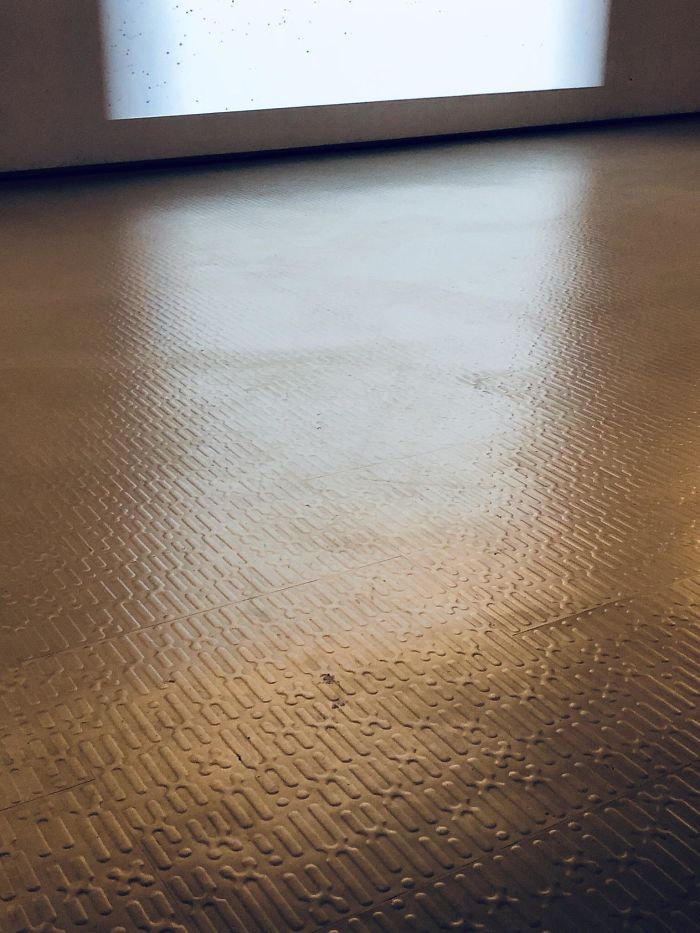
This includes 22 pairs of counted chromosomes (autosomes) and one set of sex chromosomes (XX or XY). Two chromosomes, one from each parent, make up each pair. We are pretty sure that this is a man’s decision. Because you would be like “Y?” every time you look at this.
Titanic II: Oceanic Bugaloo
Now, what are the odds of this happening? Again! Jack would be pirouetting in his watery grave if he knew about this. Worse things could happen, see? Rose could visit this exhibit, for old time’s sake. Nostalgia hits hard, you know.
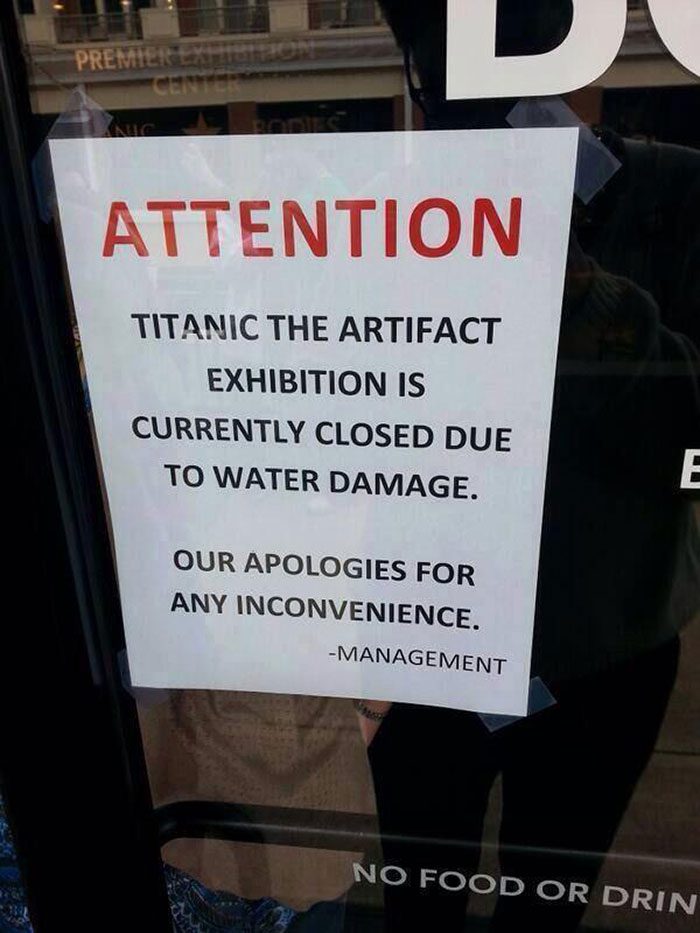
Then Celine Dion starts to play from the speakers and Rose will be like “Oh shoot. Not again.” She’ll remain calm until the first responders arrive because this isn’t her first rodeo and will ask others, “first time?” As a bonus feature, Jack shows up like Bootstrap Bill.
Crash landing
Technically, this is not a UFO. UFO stands for Unidentified Flying Object, and we have identified this as a spaceship. And it’s not flying because, well, it crashed so hard to this wall. It’s stuck, literally embedded in the wall.
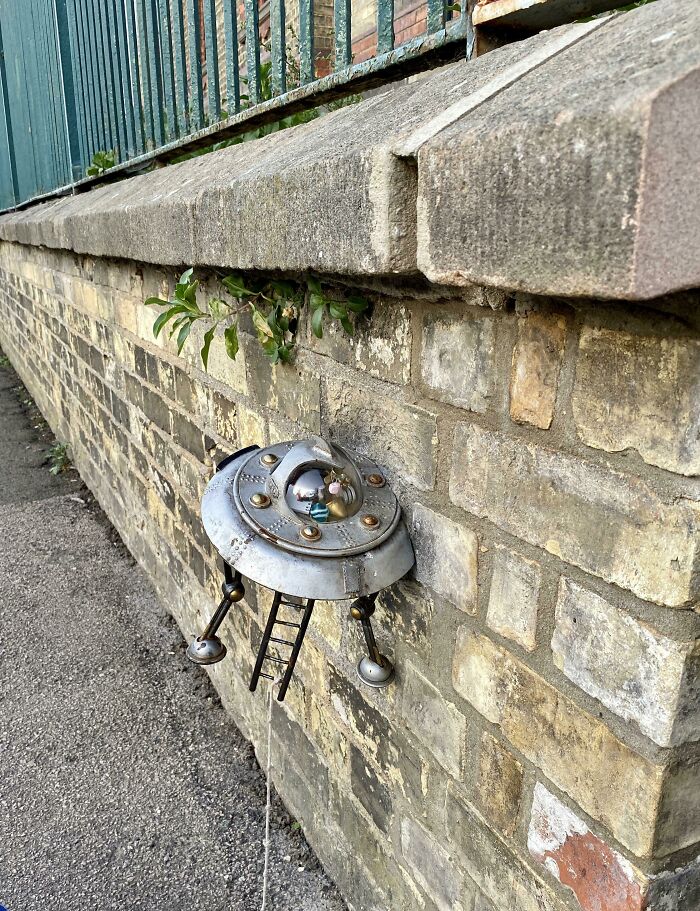
Technically, this is just an object. But we do love the little touches on this art. That escape ladder, the knotted thread dangling down to the ground — it tells a full story without a single word. This isn’t random either; it’s part of installation art called Dinky Doors.
Millennial Collection
Now, look at this right here. Honest to God, if this was an Airbnb option, we would jump up at the chance of spending a day here. Just look at this place! We know that it’s in a museum. Sigh.
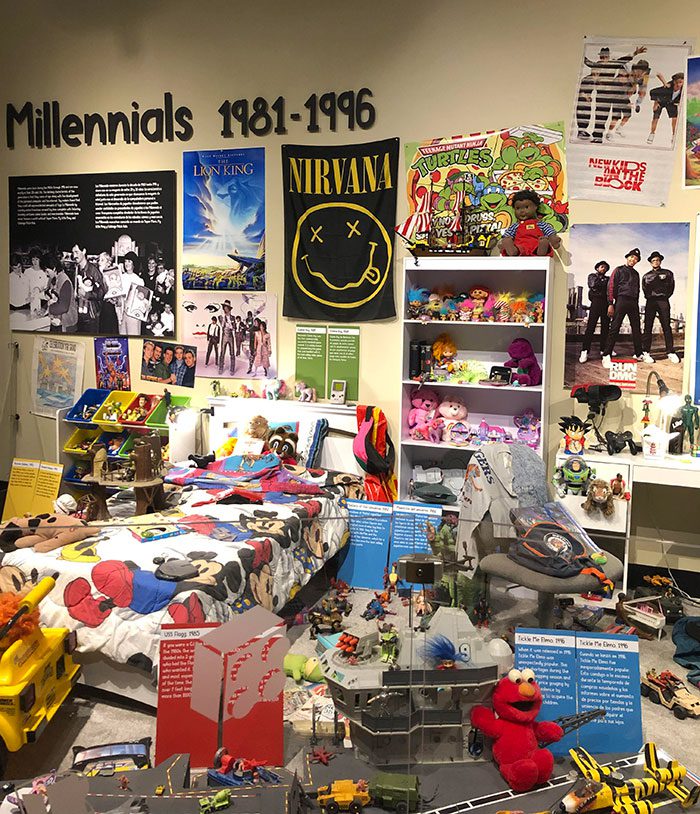
The original Ninja Turtles (Don’t @ us! That theme song was the best!), Run DMC, New Kids on the Block, Lion King, Care Bears, Toy Story. Holy moly! It’s like we died and went back in time when things were less complicated.
Houston Museum of Natural Science – Texas, USA
More than 450 fossils including fossil reproductions (as well as this LEGO T-Rex. Just look at the level of detail on this thing) may be viewed in the Museum’s Hall of Paleontology, giving visitors a clear view into the amazing 3.5-billion-year history of life on Earth.
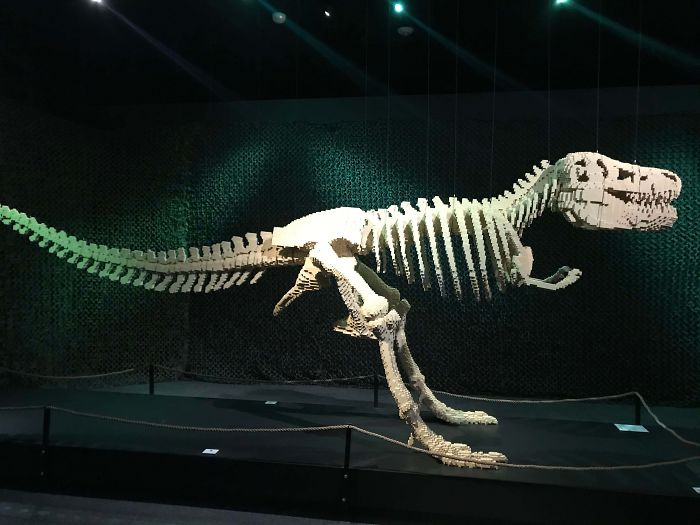
This exhibition hall will put the beasts that formerly governed our world in your direct line of sight, from the modest trilobite to the powerful Tyrannosaurus rex. The 30,000-square-foot hall, which debuted in the summer of 2012, is the biggest extension in the museum’s history.
Why would you even do that?
Now, why would anyone be stuffing their hand into a place like this? Unless you’re the curator of the British Museum and you’re trying to awaken the Scorpion King using the Bracelet of Anubis, you have no business whatsoever in this place.
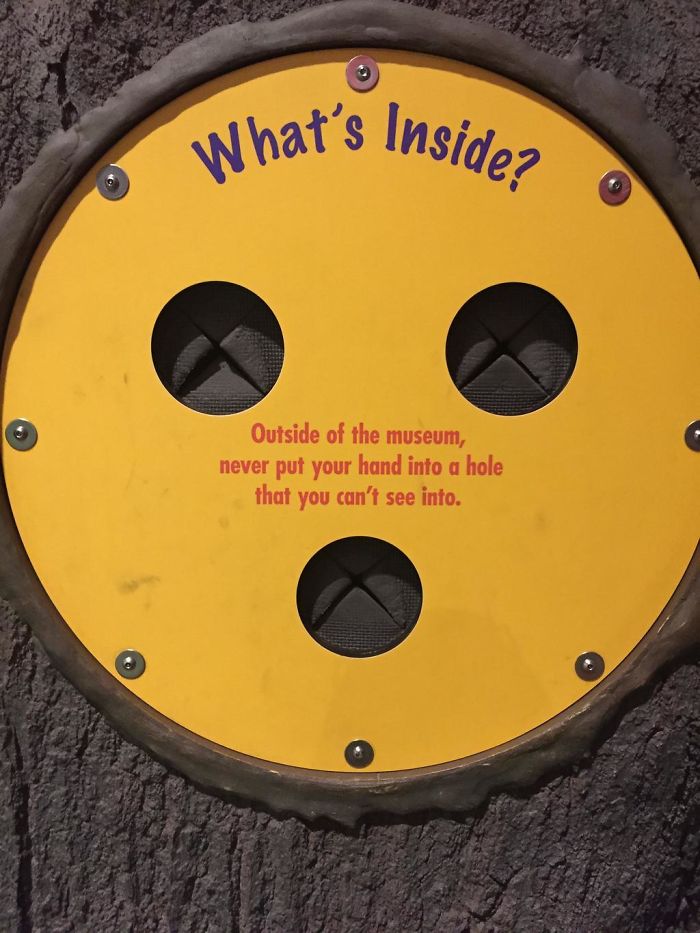
If you got that reference, well you do have a bright future ahead of you. Unlike Anck-Su-Namun. Because she perished. Do us a favor and go watch the beloved 1999 classic The Mummy starring Brendan Fraser and Rachel Weisz and its 2001 sequel, The Mummy Returns.
Spokane Children’s Science Museum
The Mobius Kids Children’s Museum is situated next to the Mobius Science Center in downtown Spokane. Through interactive displays, the museum encourages children to learn and explore by themselves. Children receive instruction on energy conservation. The museum encourages role-playing in a kid-sized metropolis.

Even the youngest children have a space of their own in which to safely discover and crawl. From the get-go, children feel welcome. Look at this miniature door! Kids can start their journey by opening a door built just for them.
